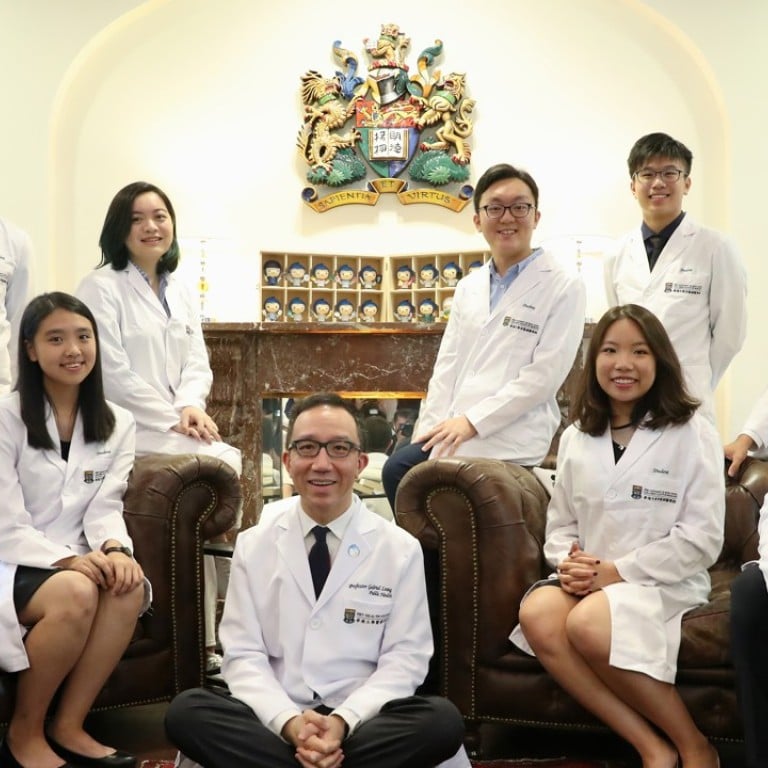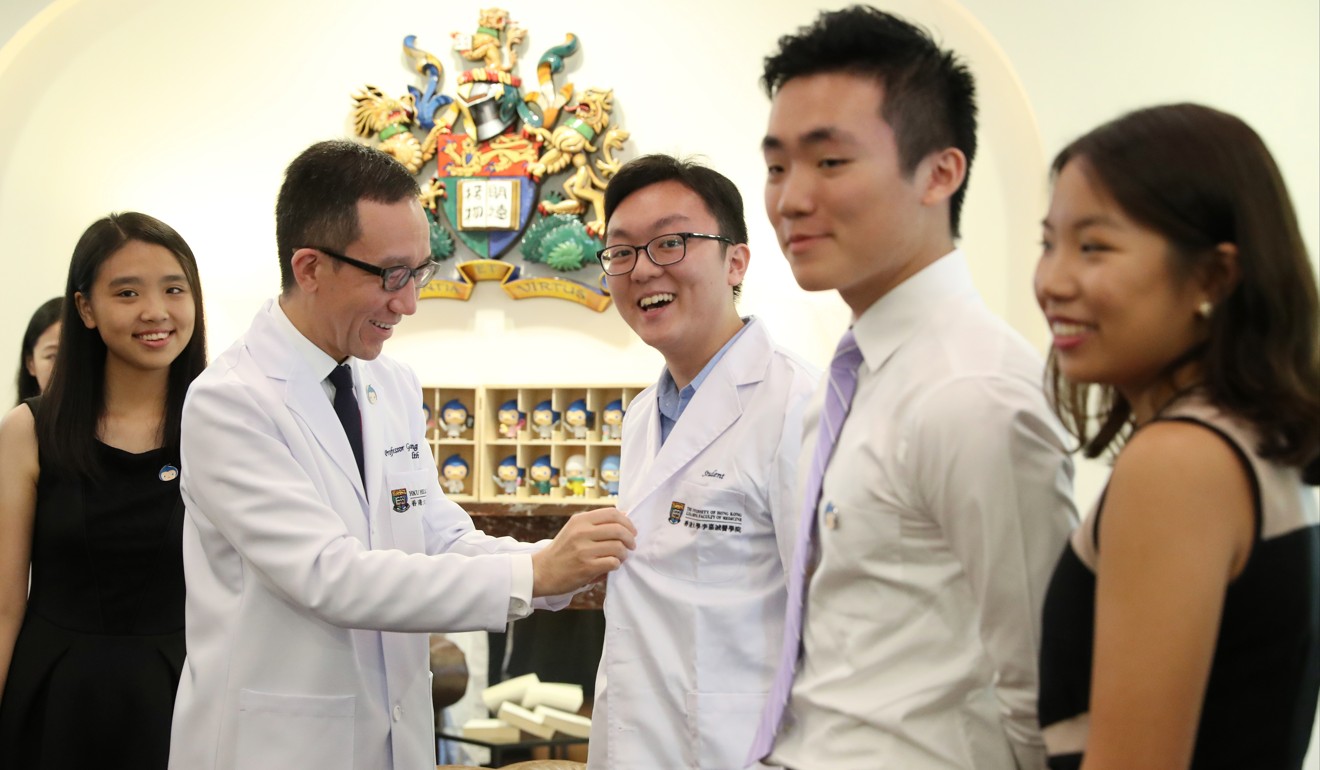
HKU to announce DSE exam score requirements for medical degree before students sit tests
Hong Kong students will be told the minimum grades needed for admission three to four months in advance
Youngsters aiming to do a medical degree at the University of Hong Kong from next year will know upfront the minimum required score to qualify, even before they sit their Diploma of Secondary Education exam.
HKU’s medical school said on Monday it would make known the score needed about three to four months before the exams, which normally start in March.
Youngsters now look at the previous intake’s minimum score for acceptance before applying through the joint admissions scheme, the year before their DSE.
After their exam, they go through an interview with faculty members in June. Those who make the cut for both grades and interview are accepted.
Professor Gabriel Leung, the medical faculty dean, said the change meant youngsters would not need to keep guessing if they would get into the highly competitive programme, which admitted 235 students this year.

“There were students who were interested and had satisfactory results, however they refused to go further and apply for a medical degree due to the uncertainty of the chance in being admitted.
“This is extremely unfortunate,” he said, recounting what had happened previously.
HKU also announced it would increase its intake of medical degree students to 265 next year, as part of a government push to boost publicly funded training places for doctors, dentists, nurses and allied professionals for the coming three years.
There is a chronic shortage of medical staff, with experienced doctors moving to the lucrative private sector and an ageing population placing huge strain on the overburdened public sector.
The Hospital Authority, which runs 43 public hospitals and institutions providing over 28,000 beds, said earlier it would recruit 420 graduates this year to meet its shortage of 300 doctors.
In its annual report, it said it would recruit 2,230 nurses and 540 allied health professionals.
Those who were successful in applying to HKU’s medical faculty needed a minimum score of 37 for six DSE subjects – or near-perfect grades. Under the seven-tier grading system, students can get anywhere from 1 to 5, 5* or 5** for each subject.
The exam’s highest-ever scorer, Thomas Wong Tsz-hang, got 5** in nine subjects and starts at the medical faculty next month.
“I’m honoured to be admitted. My hope … is to be a good doctor,” the 18-year-old said.
When Chinese University, the only other institution that offers medical degrees, was asked if it would change its admission system, it said: “CUHK will not keep changing our admission policy, that may confuse students.”
It had 235 places for the school year beginning in September and had filled 155 from the joint university admissions scheme.
Results of joint admissions were released on Monday and 16,538 youngsters had gained admission to bachelor’s degree courses in nine universities taking part in the exercise, including eight that offer publicly-funded degrees.

